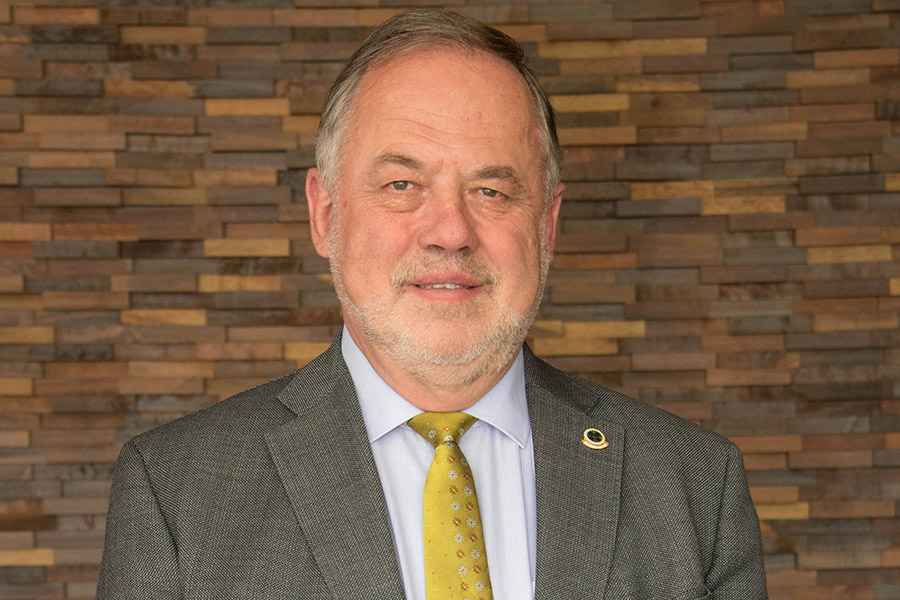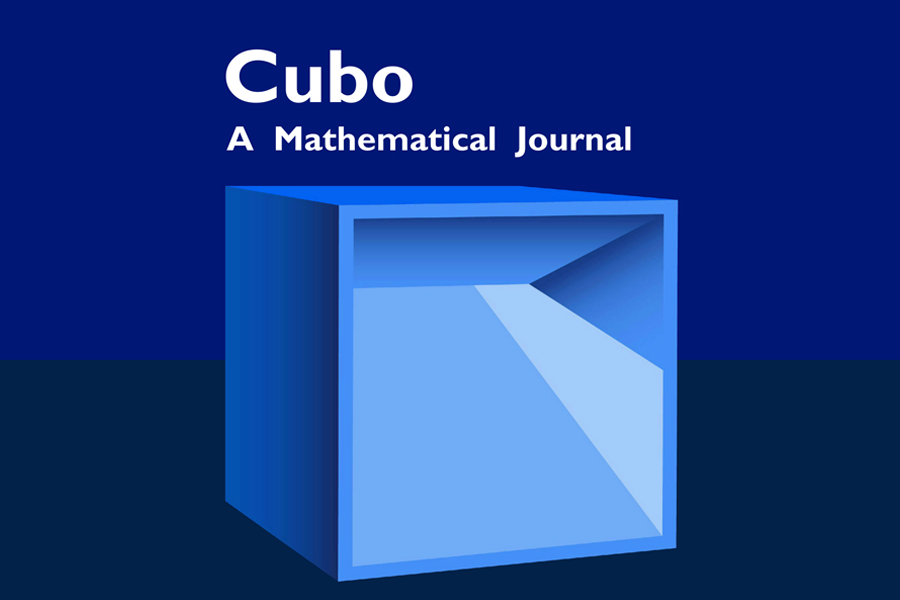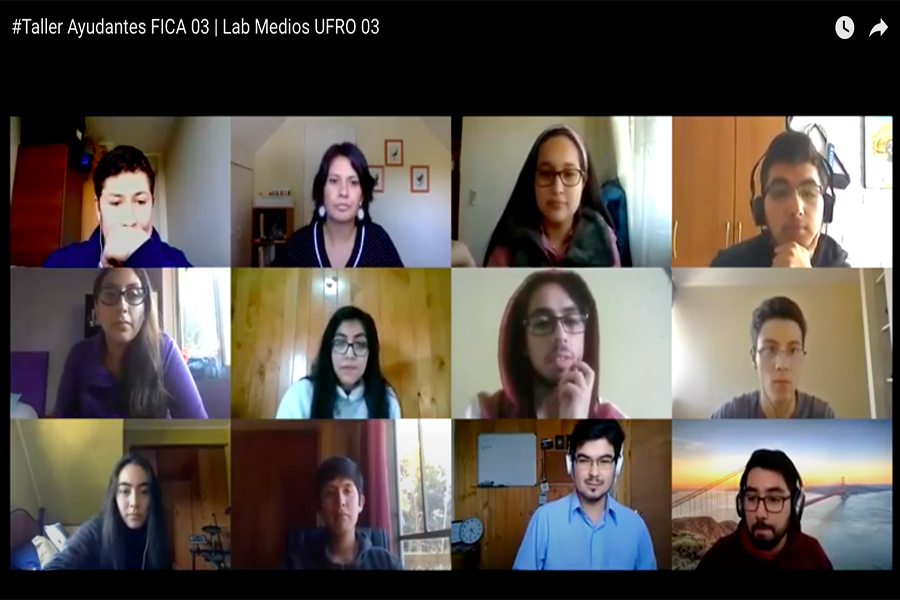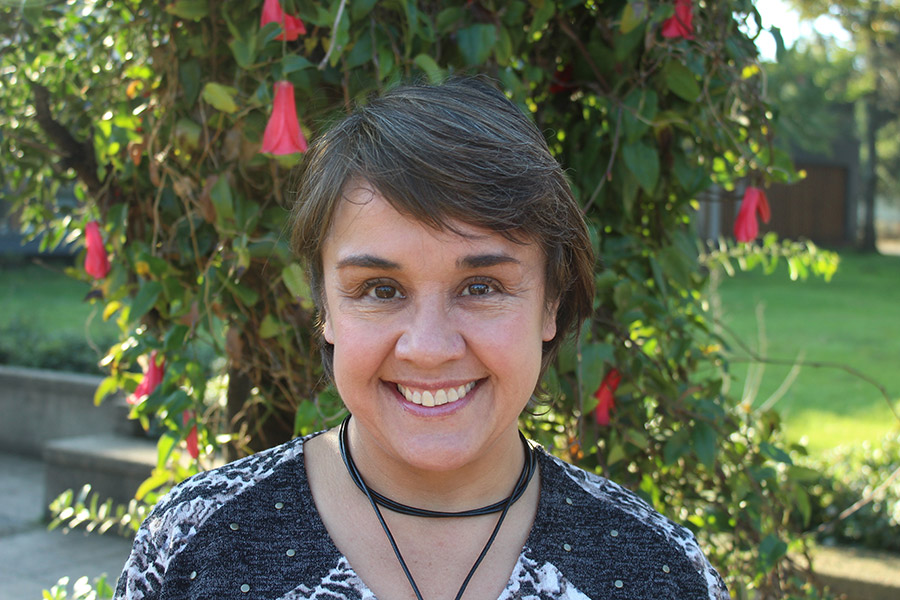|
|
It may be true that COVID-19 is here to stay – at least until a vaccine is found – but what is definitely never going to leave is the digital age. Although it has gradually been establishing itself over the last years, this pandemic has clearly made it evolve more than ever through the use of the Internet, technological devices, ICT tools, forums, chats, blogs, the media, and so on. It is deeply transforming our habits, language, life and customs, and is installing a permanent digital culture. Our society and the world have changed and we must be fully aware of that. This pandemic and the digital age are forcing us to leave old and harmful practices behind – with incredible speed – in order to reshape everything and to adapt. It is a new way of governing, living and working. All of that is happening in the so-called VUCA context, which is an acronym for volatility, uncertainty, complexity and ambiguity, and describes the current environment in which institutions and people move. It is a scenario in which we are forced to adapt to the continuous changes that burst into our daily lives and affect our routines on the professional, family, economic and social level, amongst many others. Nevertheless, if we manage to be aware of the nature and dynamics of these changes, as well as the speed with which they occur, we can work on new structures and more flexibility. This also implies a great number of challenges, for individuals as well as companies or institutions. Therefore, we must develop digital skills, knowledge and attitudes that can turn this pandemic into something useful after all.
|
|
The confirmation sent by Scopus stressed the quality of the articles and the trajectory of this journal, which belongs to the Department of Mathematics and Statistics of the university Universidad de La Frontera. |
Some of the reasons that allowed CUBO “A Mathematical Journal” of the Universidad de La Frontera (UFRO) to be included in the main collection of the worldwide renowned international database of Scopus are the quality of its contents, its trajectory, its continuous development, and the hard work and commitment of the university. There are three research journals in mathematics in Chile, and two of them are indexed, including CUBO, what adds prestige and international visibility to the university and the Department of Mathematics and Statistics of the Faculty of Engineering and Sciences, which publishes this journal. “We are very proud of this important achievement, since it recognizes CUBO as a leading magazine in the creation of knowledge with global relevance. This is also a recognition of the editorial staff, the level of publications and the management of all the processes involved,” Dr. César Arriagada, the Research Director at UFRO, said. CUBO has a long history. Its origins date back to 1985, mainly with expository articles; in 1999 it turned to the field of education in mathematics; in 2004 it became an official research journal and in 2008 a development strategy was adopted that allowed it to be indexed by SciELO in 2011. In 2016, all efforts were aimed at its internationalization and access to new and better databases. “This progress is the result of years of hard work in the Department of Mathematics and Statistics. Today 95% of the articles published correspond to foreign authors, 70% of the reviewers are also external. The interest in publishing has increased significantly, as well as the quality of the papers and authors. Now the challenge is to achieve the WoS indexation,” says the current editor in chief, Dr. Rubí Rodríguez. Dr. Mauricio Godoy is the executive editor of the journal and explains that one of the strategies they have implemented in recent years is to prioritize the quality of publications rather than the quantity. “The idea is to raise the scientific level of the journal. There are a lot of publications in the world of science today, but not all of these publications have a relevant impact. What we are interested in is to maintain a high standard of quality.” Today, the team in charge of http://cubo.ufro.cl/ consists of four academic staff members of the UFRO Department of Mathematics and Statistics: Dr. Rubí Rodríguez, Dr. Mauricio Godoy, the engineer Ignacio Castillo (operational coordination), and José Labrín (layout). For them, there is no doubt that this achievement is the recognition of several generations of UFRO mathematicians who have allowed this magazine to reach a level of international excellence. Written by: Karimme Riadi Millas |
|
The Media Laboratory of the university Universidad de La Frontera together with the Office for Continuous Education of the Faculty of Engineering and Science trained the academic staff, students and assistants for undergraduate online classes with the clear aim of expanding their knowledge about e-classes, e-learning and the new functions of the Virtual Campus platform. |
The current health emergency challenges our society in many ways, for example when it comes to the continuity of education processes. In response to that, the Universidad de La Frontera (UFRO) decided to carry out the first semester of 2020 online, a reality that is completely new for most teachers and students. With the aim of providing optimal conditions for this online semester, the Faculty of Engineering and Science (FICA) implemented through its Media Laboratory and with the help of the Office for Continuous Education a series of online courses and workshops on e-learning and teaching. “We are convinced that distance education is a more and more important way of learning in our society and there is no doubt, that we will make great progress in this field during and after the pandemic. We also know that the situation we are dealing with is absolutely exceptional and that it is a big challenge to prepare and complete courses that normally would take months in only weeks. That can cause a lot of stress, in addition to other situations we have to face,” Dr. Juan Pablo Cárdenas, the director of the Media Laboratory, pointed out. Against this background, he adds that “the team of the Media Laboratory and the team for Continuous Education of our faculty have been working hard to develop a basic and compact model in order to simplify the start of this online semester as much as possible. We applied all our experience in distance education and we are constantly working in order to provide the best support possible for this difficult task”. The Media Laboratory carried out 14 workshops for teachers, 10 for students and 3 workshops for class assistants, in addition to a “Virtual Campus Assistance” course for academic staff and another one for the students, in order to make them familiar with the different educational resources and tools the platform offers. “The training provided by the Media Laboratory regarding the use of the Virtual Campus was very important for organizing and standardizing our online teaching during this first semester. It is a great challenge for everyone to teach under the condition of virtuality in the context of the health crisis we all confront. We have to make sure that these classes are of quality, so the students can learn and feel confident about them. Having that in mind, one way to improve is to continuously provide trainings for everyone who’s involved. On the other hand, we must be open to the suggestions and opinions of the students, in order to make our classes more efficient,” Dr. Erick Scheuermann, the Academic Secretary of FICA and an academic staff member of the Chemical Engineering Department, said. Dr. Magaly Sandoval, an academic staff member of the Department of Industrial and Systems Engineering, pointed out: “It was important for me to have participated in this training, since I chose to change to the FICA template for the subjects I teach. Thanks to these workshops I learnt how to use it in a didactic way and in much less time. The workshops on Zoom were also very clear, because they shared many tips, which I am currently putting into practice during my classes.” She adds that “the space for “Virtual Campus Assistance” is really great, because you can find everything you need to prepare your online classes in accordance with the guidelines of the Vice-rectorate for Undergraduate Affairs, including links to the recordings of the workshops, in case you need to view them again. And, most importantly, the support doesn't end there. I can send them my questions whenever I need to and they always respond very quickly and resolve the problems. For the same reason, I just want to thank and congratulate the professionals of the FICA Media Laboratory for their Virtual Teaching Training workshops to which they invited us. It is a privilege to have such dedicated professionals at UFRO.” The feedback received from the students who participated in these workshops was also very positive. Jhandary Muñoz, who studies Civil Engineering, says that “the implementation of the workshop for assistants was a very good idea, considering the situation in which we find ourselves and that online classes are something new for all of us, both teachers and students. It helped us to clearly understand what the assistant's tasks will be during this semester and how we can approach this new way of teaching and learning in the best way possible”. In addition, this student, who is currently an assistant in the subjects of Asphalt Paving Technology and Transport Engineering, adds: “Personally, I think that the university has put a lot of effort into the preparations for this online semester, trying to convert it into a good experience for everyone. And I think that if we all put in a little effort, we can learn as much as our in-person classes.” In total, a number of 150 members of the academic staff, 288 assistants, 92 teachers and 510 students (376 freshmen and 134 students of higher courses) participated in the courses and workshops. It is also important to mention that the Media Laboratory supported the creation and implementation of a FICA template that considers 2 important components: 1) structure, which allows the development of an instructional design, providing guidelines and guides to organize the training development process and 2) layout, with a modern approach, easy to navigate and compatible with mobile devices. This template is being used in 303 undergraduate courses taught during this semester, which is completely online. The Media Laboratory of the Faculty of Engineering and Science of the Universidad de La Frontera is dedicated to supporting innovations in engineering education through the promotion of multimedia materials created locally by academic and specialized staff in order to facilitate the work, visualization design and virtualization of content. In the medium term, this unit seeks to become a center of advanced technological support for educational purposes in different fields of engineering, online education and the integration of educational videos in 2D and 3D. Written by: Daphne Bormann
|
|
Online education and quality. |
“We are facing a situation at the moment, which is absolutely new and which does not only affect the population’s physical health, but also our way of interacting with other people, the way we work, communicate, enjoy our environment and our education. This situation has made us assume our vulnerability and requires greater flexibility, adaptivity and humility from us. It invites us to stop over-demanding, to reflect, to look at ourselves and to give value to what we often don’t even see. This is where teachers become key in order to support, guide and inspire the students to make their lives more complete, healthier, happier and more meaningful. They can become guides who give great strength to the students through education and their online classes. The fast technological evolution, students who are digital natives, the implementation of shared classrooms (where teachers from other institutions or countries can participate as guests), the possibility of visiting museums and libraries around the world for free, plus the efforts of the teachers and educators themselves to learn and be trained, are elements that we must value today, in addition to a teaching-learning process that involves emotions, bonding, trust, good faith and especially hope. Although there are some cases in which they don’t have access to the internet or computers or in which there is no certainty at all, we have to keep our hopes up. So, what should we concentrate on? On maintaining the personal link between teacher and student; on innovating and diversifying our way of teaching; on always putting the student at the centre of the knowledge creation process; and on the development of skills like self-management, learning to learn, self-confidence and hope. This is an opportunity to strengthen values and to make the students recognize their knowledge, previous experiences and personal resources without forgetting their personal backgrounds. In addition to that, we have the opportunity to cultivate and practice social skills that are essential in life, such as empathy, solidarity and mutual respect. We have the chance to apply varied, motivating and highly effective resources, which invite the students to be creative, to adapt and to learn permanently. Feedback for both sides should be a constant variable, so that we all learn together. The focus is not the grade, it never should have been. The focus should be on learning and preparing for life; a good life, with purpose and meaning. What we are learning about online education at the moment will not expire when the pandemic ends. This online learning modality will last and complement face-to-face learning. We are facing an opportunity in education and we must be aware of that!” Helga Gudenschwager Grüebler
|
|
More than 3 thousand students benefited from the program which had the objective of providing support to students who don’t have access to the internet. Thanks to the benefit, they will be able to join the online classes and to continue with their undergraduate studies under the current circumstances. |
In the context of the global Covid-19 pandemic, the Universidad de La Frontera (UFRO) decided in March to suspend all on-site activities and to teach the students online during the first semester of 2020. But not all of the students do have access to the internet. This is why the University decided to support the students in need by providing them with a scholarship, in order to give them the opportunity to join the online semester. The benefit consists of a monthly scholarship of 15,000 CLP (ca. 18 USD) each, so that the students can obtain access to the internet and the virtual platforms on which the online classes take place. It helps the students to purchase or improve their data plan, what allows them to participate in this new teaching model that will last the whole first semester of 2020. Unlike other universities, the Universidad de La Frontera believes that a direct financial aid is the best option, considering that part of the student body lives in places with poor connectivity due to the context of our region. Another service that UFRO has implemented with the help of the Student Development Office is the loan of laptops. Because of the limited number of equipment, the different UFRO Faculties also gave their support in this process by making equipment available to the students in need. Alex Seguel, the director of the Office for Student Development (DDE), commented that they have made a joint effort with the Faculties to assign computer equipment, based on the information the DDE had. “We are committed to responding in the best possible way to a requirement that is complex, both in terms of logistics and access in the case of rural areas. But we are working on it. We talked with the Faculties to inform them about our selection process, which allows them to have a record of the allocation of equipment and also for them to better distribute their own resources. Our goal is to help the University to meet all requirements,” he explained. SCHOLARSHIP ALLOCATION Verónica Pincheira is the head of the UFRO Office for Student Services and pointed out that the scholarship was allocated based on socioeconomic and university admission conditions and the enrollment history. The data was cross-checked against the University's enrolment system (socio-economic indicators, type of admission, educational establishment they came from and whether they live in urban or rural areas). Ten different variables were considered - six are based on socioeconomic factors and the others are based on the student’s enrollment and geographic location,” Verónica Pincheira explained. DELIVERY OF THE SCHOLARSHIP The scholarship will be delivered via wire transfer to the bank account indicated by the students in their application form. The beneficiaries of the first call for the Internet Connectivity Scholarship have already been paid and at the moment the University is working on the delivery of the scholarship for beneficiaries of the second call, as well as on handing out laptops to the students selected for this benefit. Until now, the UFRO Office for Student Development and the different Faculties handed out 133 laptops to students living in the urban area and 250 laptops to students living in rural areas. Written by: UFRO Communications Office
|










